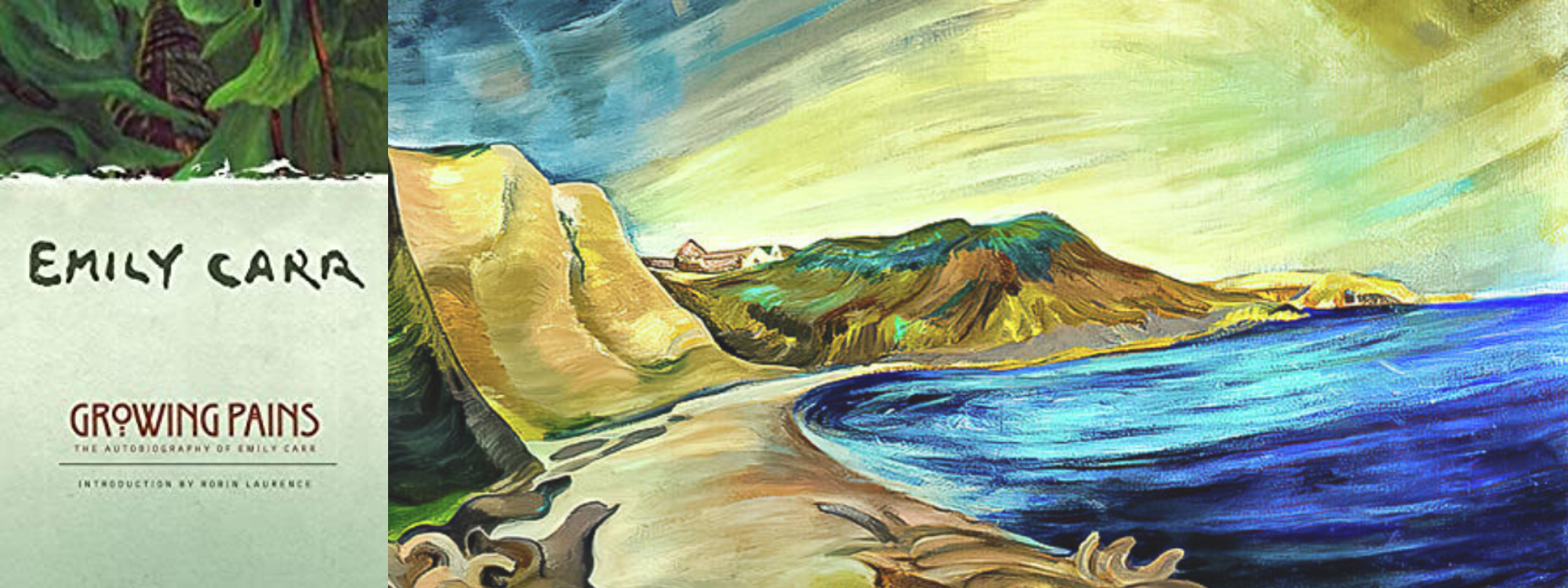The Westminster Art School closed for a short Easter recess, when I had been nine months in London, nine months of hating the bustle, the crowd, the noise, the smell.
I said, “Mrs. Radcliffe, is there a little village that you know of where I could go and be in real country?”
“There is the village of Goudhurst in Kent. It has a comfortable Inn; I have stayed there myself.”
There was another student in the school who came from Victoria. She decided to come to Goudhurst for the holiday, too.
The village was a tiny sprawl of cottages on the top of a little hill. We were met and wavered up the Goudhurst Hill by the Inn’s ancient host and his more ancient horse and chaise. The village was all of a twitter because tomorrow the Butcher’s daughter was to marry the Baker’s son. Everyone was talking of the coming event.
The Inn parlour was low-ceiled, and beamed. There was a bright fire on the open hearth and its glow pinked the table cloth, the teacups, and the cheeks of our host and hostess, who were garrulous about the wedding.
My bedroom was bitterly cold, the bed felt clammy with damp. I woke to a sharp spring rain next morning, but the sky did not want to wet the wedding, clouds scuttled away and soon the sun shone out. Villagers swallowed hasty breakfasts and hurried with flowers to decorate the church which was just across from the Inn.
I too hurried across the churchyard but not to the wedding. I saw a wood just beyond the graves. There was a stile across the graveyard fence. Thrushes, blackbirds, every kind of song bird was shouting welcome. From the centre of the graveyard two larks rose up, up—wings and song twinkling. The notes scattered down to earth clear as rain drops. I sat one moment on top of the stile. The church bells began to peal such a merry jangle.
They must have seen the bride coming down the village street and were reporting to the people. Dog carts, pony carts, chaises from all over the neighbourhood nosed up to the churchyard fence, dogs barked, a donkey brayed—long, derisive, melancholy brays. I climbed over the stile. The gravestones were blackening with sitters waiting for the bride.
I heard enough church bells, saw enough people in London. I pressed hurriedly into the wood, getting drenched by the dripping greenery. Deeper, deeper I penetrated among foliage illuminated by the pale, tender juices of Spring. There were patches of primroses pale as moonlight, patches of bluebells sky colour, beds of softest moss under my feet. Soon my feet were chilled and wet.
“Cuckoo, cuckoo!” Live throats uttered the call I had heard voiced only by little wooden painted birds connected with a mechanical apparatus, unmannerly birds who shrieked “cuckoo!”, burst open a door in the front of the clock and slammed it shut again. Violent little birds!
“Oh, London! Oh, all you great English cities! Why did you do this to England? Why did you spoil this sublime song-filled land with money-grabbing and grime?”
Baby daffodils hooked the scruffs of their necks up through the moss under my feet; those whose heads were released from the moss were not yet bold enough to nod. Spring was very young. I was so happy I think I could have died right then. Dear Mrs. Radcliffe, I loved her for directing me to Goudhurst. I would gather a big boxful of bluebells, primroses and daffodils, post them for her Easter in London. Oh, the spring smells! The lambs bleating in the field beyond the graveyard! The shimmer of the greenery that was little more than tinted light! How exquisite it all was! How I hated to go back to London!
I burst in on Mrs. Radcliffe, reading the war news as usual.
“Mrs. Radcliffe! Oh, oh, oh!”
“You like our English Spring, Klee Wyck?”
Mrs. Radcliffe was not a kissy person. I was shy of her, but I could not help what I did. I attacked from behind her chair. Her cheek was not soft, nor used to being kissed—my hug knocked her hat crooked.
“Dear me, dear me!” she gasped. “What a—what a ‘Klee Wyck’ you are, child!”




0 comments